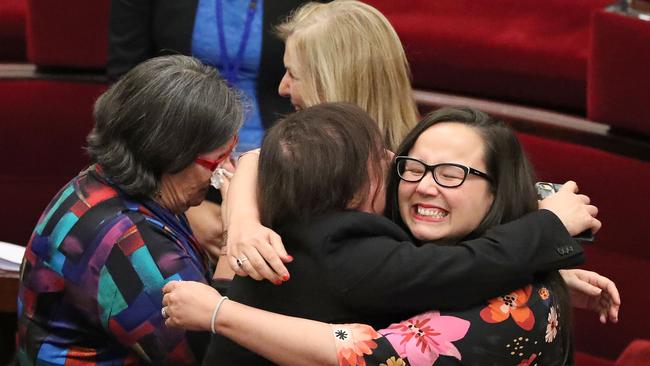Let me tell you about my brother’s death
MY brother suffered a ghastly death. Take a minute to read about his suffering - including a particularly gruesome incident in the last 24 hours of his life - and then tell me you can’t support euthanasia, writes Margaret Wenham.
Rendezview
Don't miss out on the headlines from Rendezview. Followed categories will be added to My News.
MY brother died on my mother’s 87th birthday, seven and a bit years ago.
I guess there’s something circle of life-themed that could be said of John, mum’s first born, dying on her birthday. But the standout aspect of my brother’s death was how ghastly it was.
I’ve written about what happened to John once before, about a month after he died when the sorrow for his loss, and the anger about how he suffered, was fresh and clear in my heart and mind.
With the sorrow numbed by the passage of time but with the anger as sharp as ever, I’m writing again about John to lend, for what it’s worth, my voice and my sister’s voice — for it was she who spent the most time with him in his final days — to the campaign launched this week for the legalisation of euthanasia in Queensland and to appeal for every legislature in Australia to follow Victoria.
This is because John’s death was not only unspeakably ghastly for him due to the terrible pain and indignity he suffered in the weeks, days and hours prior to his passing. It was also deeply distressing for his family, seeing the extent of his suffering and particularly learning what he went through the day before death gave him relief from what had become a living hell.
About six weeks prior to dying, John had visited the lead specialist in his treatment team. He had developed a secondary cancer that was partially blocking his bowel. He was experiencing bouts of agony and feared the pain of a total bowel blockage. With my brother-in-law by his side, he begged for surgical intervention.

He was told an operation would likely mean he would never get off the operating table. John declared himself willing to take the risk but the procedure was refused.
Within about two weeks he was admitted to hospital for blood transfusions and to stabilise his pain. He remained there for 16 days during which time a scan revealed the cancer had now spread into his femur, pelvic girdle and spine.
He was discharged, spending one night at a regional hospital before he got his wish to go home, a visiting palliative care nurse assigned to make all the necessary arrangements.
Within a week, John collapsed and was taken by ambulance back to hospital. By this stage, as a letter my sister and I subsequently wrote records, he was wearing two 100mg Fentanyl patches and having half-hourly top-ups of morphine. Yet despite this, he remained in considerable and constant pain.
My sister recalls that on one visit he became very agitated. He asked her to get him a gun. He asked her to take him to the window and push him out. He asked the nurses to give him an overdose of morphine. They told him it was illegal. He said: “Give me some paper and a pen and I will write to the police and tell them it was my decision.”
When my sister received the call three days later that our brother had died, she rushed to the hospital. She was not prepared for what greeted her.
She says: “We walked into the room and the smell was overwhelming. I asked the nurse what it was and she said they’d hoped they’d scrubbed and cleaned enough to get rid of it. Then the nurse explained what had happened — that during the night John’s bowel had burst through his abdomen spraying bloodied and foul-smelling matter everywhere.”
John died within 24 hours of this awful, awful thing happening to him and my sister believes the staff had, finally, administered increased doses of morphine to assist his death.

If they did, we’re grateful to them. Apparently this is the informal euthanasia that is sometimes practised quietly by the medical profession. It is known in the trade as “the doctrine of double effect” pain relief.
Our mother, now 94, is a retired nurse of 40 years experience. She did her nursing training in London during World War II. She still occasionally, when her memory permits, recalls putting patients under their beds during German bombing raids at the height of the Blitz and caring for servicemen with terrible burns.
She has always believed there is a place for euthanasia and she told me my brother discussed it with her a couple of weeks before he died.
He told her he’d been stockpiling tablets which he’d use to end his life once home. But Mum, who kept abridge of developments and news reports about euthanasia, said she had counselled him against it — that he would need to take great care that his wife, for whom English was a second language, was not implicated or considered to be complicit, lest she be prosecuted.
I think John heeded Mum’s warning and I’ve sometimes thought Mum blames herself for what happened to him at the end. She now will not talk of it.
Like my mother, and knowing what happened to my brother, I firmly believe in the right of a terminally ill person of sound mind to end their own life.
Polls consistently show 70-plus per cent of Australians support voluntary assisted dying.
The Queensland campaign launched yesterday is one whose time has come.
Margaret Wenham is the opinion editor of The Courier-Mail.


